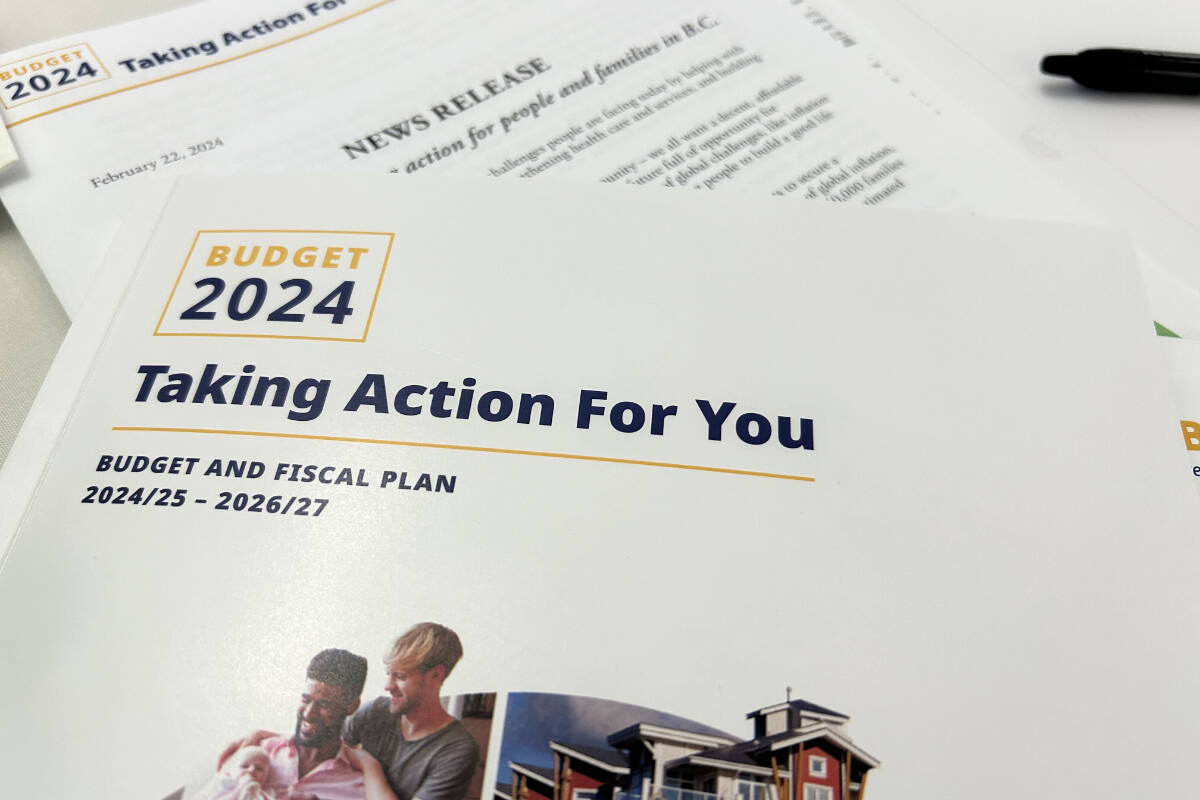British Columbians looking for new ways to put money back in their pockets this year will find limited relief in the B.C. NDP’s 2024 budget.
Released on Thursday (Feb. 22), the province’s latest fiscal plan continues with several already-implemented cost-cutting measures, but only introduces a few new steps to help people out with the cost of living. The two major ones are one-off promises, set to align with this year’s October election.
One of those two – the only truly new measure to be announced – comes in the form of an electricity use credit. The Electricity Affordability Credit will run for one year from April 2024 and cut about 4.6 per cent off residents’ monthly hydro bills. The exact amount will vary from home to home, but the province estimates it will save households an average of $100 over the course of the year.
It will also apply to commercial and industrial customers, with small businesses estimated to save $400 and the largest consumers set to save up to hundreds of thousands of dollars.
The province estimates the credit, taken together, will save British Columbians about $370 million over the next year.
The second major measure is a one-time bonus on the BC Family Benefit. The exact amount each low and middle-income family receives will be calculated based on 25 per cent of what they regularly get for each child. On average, this will amount to a $445 bonus per household over the course of one year, according to the province.
The bonus is expected to assist about 340,000 families when it is introduced in July 2024. The amount families receive is based off the number of parents, their income and how many children they have.
For instance, a two-parent, two-child family in 2024 will receive a maximum of $3,563, including the bonus. A single parent with one child, by contrast, will receive up to $2,688.
The benefit and bonus are calculated and distributed automatically, based off a family’s tax returns. The province estimates the bonus will cost about $248 million in total.
Viveca Ellis, executive director of the Centre for Family Equity, said the bonus will make a difference, especially for low-income families, but that they would like to see a long-term, durable increase to the overall benefit.
“We know that cash transfers have a huge impact on child poverty.”
Another measure being expanded this year is the number of businesses who don’t have to pay the Employer Health Tax. Those with a payroll total of $1 million or less are exempt from the tax going forward, a leap up from the previous threshold of $500,000.
The province estimates this change will make 90 per cent of B.C. businesses exempt.
British Columbians who receive the Climate Action Tax Credit will also see a small bump in savings there. A family of four who received $890 last year will see $115 more in 2024, while an individual who received $447 last year will see $57 more.
Measures that are already in place will also continue, such as the renter’s tax credit and $10-a-day childcare.
Ellis said she was disappointed, however, that the province didn’t commit to expanding affordable childcare further. She said she would have liked to have seen a commitment to 50,000 $10-a-day spaces.
READ ALSO: Childcare cost less in 2023, but it was harder to find: Statistics Canada
Rowan Burdge, provincial director of the BC Poverty Reduction Coalition, echoed that sentiment, adding that the budget lacks targeted poverty reduction measures in general. Burdge said her coalition was hoping for a long-awaited increase in disability and income assistance. She said she was also looking for more funding for transitional housing for unhoused people.
Asked Thursday whether she thinks these one-time credits are enough to address overall cost-of-living concerns, Finance Minister Katrine Conroy said she knows families are happy to receive any extra funding they can get. She said she recognizes, however, that the price of housing and food, among other areas, continue to weigh heavy on British Columbians.

